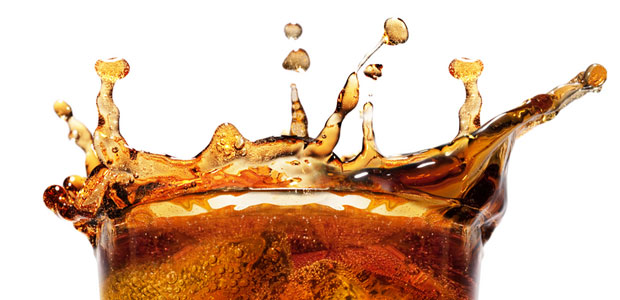Advertisement
What’s Colouring Your Cola Products?
Caramel colouring is an additive used in dark soft drinks such as Coca-Cola and Pepsi to give the drinks their distinctive dark colour. A component of the additive, however, is 4 methylimidazole (4-MI), which has been linked to an increased risk in cancer. 4-MI has been discussed by stakeholders in the food and beverage industry … Continued

Caramel colouring is an additive used in dark soft drinks such as Coca-Cola and Pepsi to give the drinks their distinctive dark colour. A component of the additive, however, is 4 methylimidazole (4-MI), which has been linked to an increased risk in cancer.
4-MI has been discussed by stakeholders in the food and beverage industry since early 2011 when the Center for Science in the Public Interest (CSPI) petitioned the United States Food and Drug Administration to ban the chemical substance in food products. The petition was based on the findings of a clinical rat study that linked the consumption of the chemical to a risk in cancer.
Is 4-MI safe?
The American Beverage Association and the Canadian Beverage Association both cite that the FDA and Health Canada have approved the chemical as safe for consumption; their data reflects findings from a recent review performed by the European Food Safety Authority.
Despite approval of the chemical in food products, the State of California’s Environmental Protection Agency listed ammonia-caramel colouring (the specific type of colouring used to colour soft drinks) as a carcinogen under the state’s Proposition 65. The distinction would require that products containing more than 29 micrograms (mcg) of 4-MI per serving would be marked with a carcinogen warning notice. The distinction applies to chemicals identified as posing a lifetime risk of cancer in at least one in 100,000 people.
What’s the result? Amounts of 4-MI have been greatly reduced in cola products—that is, in California. A recent study—to be published in the International Journal of Occupational and Environmental Health (vol. 18, No. 3)—has shown that Coca-Cola in California contains about 4 mcg per serving (355 mL). Coke products purchased around the world otherwise range from 56 mcg and 72 mcg in China and Japan, respectively, and 177 mcg and 267 mcg in Kenya and Brazil, respectively. In Canada 4-MI was measured at 160 mcg.
Other concerns for soft drinks
Despite the regulations around the various chemicals in soda drinks, we shouldn’t lose sight of their other potential health concerns. Soft drinks are a source of empty calories and are full of sugars or artificial sweeteners. A four-year study in Boston indicated that one daily soft drink could be hazardous to our health. People who drank one or more sodas per day were almost 50 percent more likely to develop risk factors for metabolic syndrome, which increases the risk of heart disease, stroke, and diabetes.
Alternatives
Looking for a drink that won’t compromise your health? Check out these healthy drink options:





